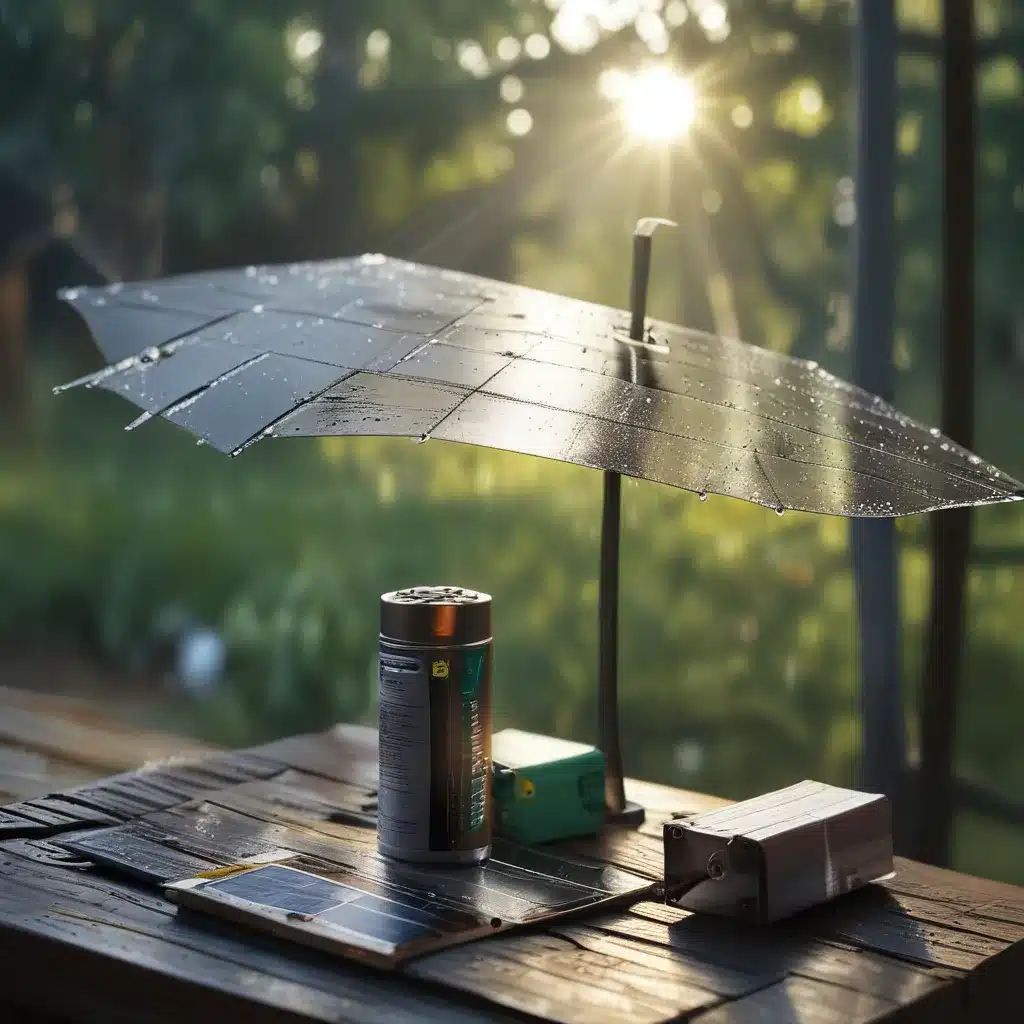
Store the Sun’s Rays for Rainy Days with Solar Batteries
Have you ever wondered what happens to your solar panels on a cloudy day? As a Minnesotan, I certainly have! Will those fluffy gray clouds up above render my shiny solar panels completely useless? Well, fear not, my sun-loving friends. Your solar panels can still work their magic, even when the skies are feeling a bit gloomy.
Solar Panels: Resilient in the Face of Clouds and Snow
Let me fill you in on a little secret – solar panels are designed to maximize energy production, even in less-than-ideal conditions. Sure, the amount of electricity generated will depend on the density of the cloud cover, but a few clouds won’t make your solar panels obsolete. As the good folks at Cedar Creek Energy explain, “Solar energy systems are designed to maximize the energy they produce to save you money.”
And what about those snowy Minnesota winters? Well, your solar panels are cleverly installed at an angle, allowing the snow to melt and slide on down, keeping your system running smoothly. So, whether it’s rain, clouds, or a fresh layer of the white stuff, your solar panels can still harness the sun’s rays and convert them into clean, renewable energy.
Maximizing Your Solar Potential with Net Metering
But what happens when your solar system is producing more energy than you can use? That’s where the magic of net metering comes into play. As Cedar Creek Energy explains, “On sunny days, your solar panels are working at peak performance to soak up free energy from the sun. They will generally reach their top potential during the brightest parts of the day, which also happens to be times when most people are at work. Because of this, your home solar system will likely be harnessing more energy than you can use.”
This surplus energy doesn’t go to waste, though. With net metering, it gets transferred to the grid, where the power company can use it to help power other homes and businesses. Think of it as an energy loan from you to the grid. And when you need energy back on those cloudy days, it’ll be there for you at no extra cost.
Storing the Sun’s Energy for Rainy Days with Solar Batteries
Now, if your power company doesn’t offer net metering, don’t worry – there’s another solution to help you make the most of your solar energy, even when the sun isn’t shining. Enter solar batteries! By installing an energy storage system in your home, you can save the excess solar energy generated on sunny days and use it to power your household on rainy days.
As Cedar Creek Energy explains, “Combining solar panels with battery storage will allow you to save excess solar energy generated when it’s sunny, which is used to run your household on rainy days. Your solar battery can also bridge the gap when there’s a short power outage. You won’t have to go around resetting all the digital clocks in your house – they’ll still be running even when grid power is out.”
The Power of a Complete Solar Kit
Now, you might be wondering, “But what if my solar panel isn’t powerful enough to run my fridge?” Well, that’s a valid concern. As the experts at ShopSolar explain, the answer depends on the size and power needs of your fridge. For a typical home refrigerator, a 200-watt solar panel might not be enough, especially for constant use. But for an RV fridge, which averages between 50-60 watts, a 200-watt panel can do the trick, especially if you overestimate your power needs.
The key is to have a complete solar power system, including not just the panels, but also batteries, inverters, and controllers. As ShopSolar notes, “Solar panels are only effective while the sun is out. For constant 24/7 power, you will need more than solar panels.” That’s where the other components of a solar kit come into play, ensuring you have reliable, off-grid power, even when the clouds roll in.
Harnessing the Sun’s Energy for a Brighter Future
So, whether you’re a Minnesotan like me, or you live in a sunny climate, solar power can be a game-changer. Sure, the initial investment might seem steep, but the long-term benefits are undeniable. As ShopSolar puts it, “Using solar power to run a refrigerator is a good way to save money. But isn’t getting a solar system expensive? Initially, yes. It can be pricey. But consider the long-term benefit. Once the system is up and running, that’s it. You will be powering your refrigerator with safe, clean, and renewable energy. It will cut down your utility costs and save you more money in the long term.”
And who knows, maybe one day you’ll be able to power your entire home, your RV, or even your small business with the sun’s rays. As ShopSolar suggests, “If a solar panel can sustain a refrigerator for a constant 24/7, why not use it for everything?”
So, my friends, don’t let a little cloud cover or a dusting of snow deter you from harnessing the power of the sun. With the right solar setup and a bit of battery storage, you can store the sun’s rays for those rainy days and enjoy the benefits of clean, renewable energy all year round. The future is bright, and it’s powered by the sun!


